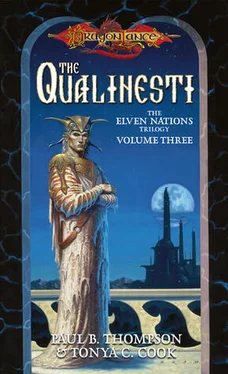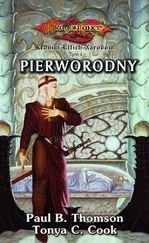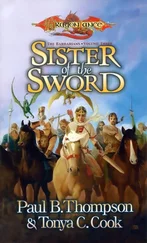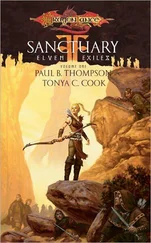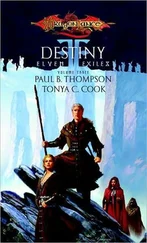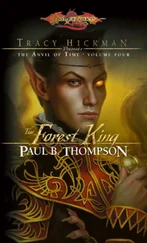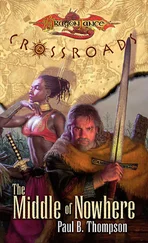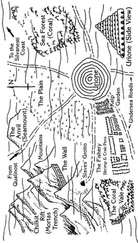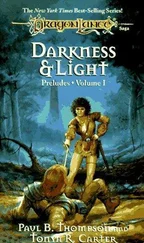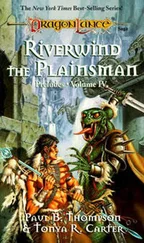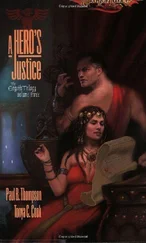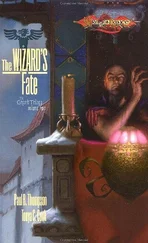Paul Thompson - The Qualinesti
Здесь есть возможность читать онлайн «Paul Thompson - The Qualinesti» весь текст электронной книги совершенно бесплатно (целиком полную версию без сокращений). В некоторых случаях можно слушать аудио, скачать через торрент в формате fb2 и присутствует краткое содержание. Год выпуска: 2004, Жанр: Фэнтези, на английском языке. Описание произведения, (предисловие) а так же отзывы посетителей доступны на портале библиотеки ЛибКат.
- Название:The Qualinesti
- Автор:
- Жанр:
- Год:2004
- ISBN:нет данных
- Рейтинг книги:5 / 5. Голосов: 1
-
Избранное:Добавить в избранное
- Отзывы:
-
Ваша оценка:
- 100
- 1
- 2
- 3
- 4
- 5
The Qualinesti: краткое содержание, описание и аннотация
Предлагаем к чтению аннотацию, описание, краткое содержание или предисловие (зависит от того, что написал сам автор книги «The Qualinesti»). Если вы не нашли необходимую информацию о книге — напишите в комментариях, мы постараемся отыскать её.
The Qualinesti — читать онлайн бесплатно полную книгу (весь текст) целиком
Ниже представлен текст книги, разбитый по страницам. Система сохранения места последней прочитанной страницы, позволяет с удобством читать онлайн бесплатно книгу «The Qualinesti», без необходимости каждый раз заново искать на чём Вы остановились. Поставьте закладку, и сможете в любой момент перейти на страницу, на которой закончили чтение.
Интервал:
Закладка:
“Captain!” Rufus shouted. “It’s one of them!”
Verhanna fumbled for her sword as she ran toward the campfire. The kender stabbed over and over again at the cloaked figure’s back. Though not muscular, Rufus possessed a wiry strength, but his attack appeared to have no effect. The cloaked one spun around, trying to throw the pesky kender off. When the front of the hood swung past Verhanna, she froze in her tracks and gasped.
“Rufus! It has no face!” she shouted.
With one last prodigious shake, the cloaked thing hurled Rufus to the ground. The kender’s small sword flew into the woods as Rufus landed with a thud. He groaned and lay still, crimson rain beating down on his pallid face.
Verhanna gave a cry and slashed at the faceless figure, her slim elven blade slicing through the cloth with ease. She felt resistance as the blade passed through whatever lay beneath the cloak, but no blood flowed. Under the hood, where a face should have been, there was only a ball of grayish smoke, as if someone had stuffed the hood with dirty cotton.
Cutting and thrusting and hacking, Verhanna soon reduced the cloak to a tattered mass on the muddy ground. Shorn of its garment, the thing was revealed to be a vaguely elf-shaped column of dove-colored smoke. Two arms, two legs, a head, and torso were visible, but nothing else—only featureless vapor. Realizing she was exhausting herself to no avail, Verhanna stood back to catch her breath.
Rufus sat up slowly and clutched his head. He shook the pain aside and looked up at the smoky apparition standing between him and his captain. His hat had been trodden in the mud, and rain streamed from his long hair. Rufus glanced from the wispy figure to the dying campfire. Only a single coil of vapor, as thick as his wrist, snaked upward from the damp wood, and it twisted and writhed oddly in the still air.
Suddenly the kender had an inspiration. He dragged the other, unoccupied cloak to the fire and threw it over the smoldering wood. The sodden material soon extinguished the last of the sparks, and the fire died. As it did, the smoky figure thinned and finally vanished.
There was a long moment of silence, broken only by Rufus’s and Verhanna’s heavy breathing. At last Verhanna demanded, “What in Astra’s name was that infernal thing?”
“Magic,” Rufus replied simply. His attention was centered on retrieving his hat from the mud. Sorrowfully he tried to straighten the long, crimson-stained plume. It was hopeless; the feather was broken in two places and hung limply.
“I know it was magic,” Verhanna said, annoyed. “But why? And whose?”
“I told you those elves were clever. One of them knows magic. He made the ghost as a diversion, I’ll bet, to keep us busy while they escaped.”
Verhanna slapped the flat of her blade against her mailed thigh. “E’li blast them! My two soldiers killed and we’re diverted by magic smoke!” She stamped her foot, splashing blood-colored puddles over Rufus. “I’d give my right arm for another crack at those two! I never even saw them!”
“They’re very dangerous,” said Rufus sagely. “Maybe we should get more soldiers to hunt them down.” The Speaker’s daughter was not about to admit defeat. She slammed her sword home in its scabbard. “No, by the gods! We’ll take them ourselves!” The kender jammed his soggy blue hat down on his head. His new clothes were ruined. “You don’t pay me enough for this,” he said under his breath.
How empty the great house seemed with Verhanna gone and Ulvian sent off to toil in the quarries of Pax Tharkas. Lord Anakardain was away from the city, with the lion’s share of the Guards of the Sun chasing down the last stubborn bands of slavers. Kemian Ambrodel was out questioning new arrivals in Qualinost about the red rain and other marvels of days past.
So many friends and familiar faces gone. Only he, Kith-Kanan, had remained behind. He had given up his freedom to roam when he accepted the throne of Qualinesti. After all these centuries, he finally understood how his father, Sithel, had felt before him. Bound up in chains like a prisoner. Only a Speaker’s chains weren’t made of iron, but of the coils of responsibility, duty, protocol.
It was hard, very hard, to remain inside the arched bridges of Qualinost, just as it was hard to keep inside the walls of the increasingly lonely Speaker’s house. Sometimes his thoughts were with Ulvian. Had he done right by his son? The prince’s crime was heinous, but did it justify Kith-Kanan’s harsh sentence?
Then he thought of Verhanna, probing every glade and clearing from Thorbardin to the Thon-Thalas River, seeking those whose crimes were the same as her brother’s. Loyal, brave, serious Hanna, who never swerved from following an order.
Kith-Kanan rose from his bed and threw back the curtains from his window. It was long after midnight, by the water clock on the mantle, and the world outside was as dark as pitch. He could hear the bloody rain still falling. It seeped under windowsills and doors.
A name, long buried in his thoughts, surfaced. It was a name not spoken aloud for hundreds of years: “Anaya!”
Into the quiet darkness, he whispered the name of the Kagonesti woman who had been his first wife. It was as if she was in the room with him.
He knew she was not dead. No, Anaya lived on, might even manage to outlive Kith-Kanan. As her life’s blood had flowed out of a terrible sword wound, Anaya’s body had indeed died. But undergoing a mysterious, sublime transformation, Anaya the elf woman had become a fine young oak tree, rooted in the soil of the ancient Silvanesti forest she had lived in and guarded all her life. The forest was but a small manifestation of a larger, primeval force, the power of life itself.
The power—he could think of nothing else to call it—had come into existence out of the First Chaos. The sages of Silvanost, Thorbardin, and Daltigoth all agreed that the First Chaos, by its very randomness, accidentally gave birth to order, the Not-Chaos.
Only order makes life possible.
These things Kith-Kanan had learned through decades of studying side by side with the wisest thinkers of Krynn. Anaya had been a servant of the power, the only force older than the gods, protecting the last of the ancient forests remaining on the continent. When her time as guardian was ended, Anaya had become one with the forest. She had been carrying Kith-Kanan’s child at the time.
Kith-Kanan’s head hurt. He kneaded his temples with strong fingers, trying to dull the ache. His and Anaya’s unborn son was a subject he could seldom bear to think about. Four hundred years had passed since last he’d heard Anaya’s voice, and yet at times the pain of their parting was as fresh as it had been that golden spring day when he’d watched her warm skin roughen into bark, when he’d heard her speak for the final time.
The rain ended abruptly. Its cessation was so sudden and complete it jarred Kith-Kanan out of his deep thoughts. The last drop fell from the water clock. Three days of scarlet rain were over.
His sigh echoed in the bedchamber. What would be next? He wondered.
“Thank Astra that foul mess has stopped!” exclaimed Rufus. “I feel like the floor of a slaughterhouse, soaked in blood!” “Oh, shut up. It wasn’t real blood, just colored water,” Verhanna retorted. For two days, in constant rain, they had tracked the elusive Kagonesti slavers with little result.
The Kagonesti’s trail had led west for a time, but suddenly it seemed to vanish completely. The crimson rain had ceased overnight, and the new day was bright and sunny, but Kith-Kanan’s daughter was weary and saddle sore. The last thing she wanted to listen to was the kender complaining about his soggy clothes.
Rufus prowled ahead on foot, leading his oversized horse by the reins. He peered at every clump of grass, every fallen twig. “Nothing,” he fumed. “It’s as if they sprouted wings and flew away.”
Читать дальшеИнтервал:
Закладка:
Похожие книги на «The Qualinesti»
Представляем Вашему вниманию похожие книги на «The Qualinesti» списком для выбора. Мы отобрали схожую по названию и смыслу литературу в надежде предоставить читателям больше вариантов отыскать новые, интересные, ещё непрочитанные произведения.
Обсуждение, отзывы о книге «The Qualinesti» и просто собственные мнения читателей. Оставьте ваши комментарии, напишите, что Вы думаете о произведении, его смысле или главных героях. Укажите что конкретно понравилось, а что нет, и почему Вы так считаете.
